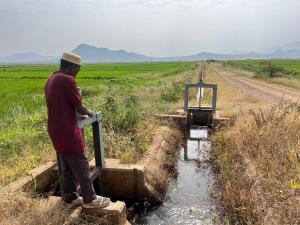C-Urge - iniciatives
helbohmC-Urge project is a doctoral network set up to research and better understand the complexity of climate and enviromental change, that is happening on global, as well as on a local scale.
Through various research approaches set in various countries, we aim to highlight the notion of urgency and need to enrich the debate around the topic of environemtal change, that is both fast, and subtle and poses a serious challenge for the future.



the rice irrigation scheme, Pare Valley, Tanzania